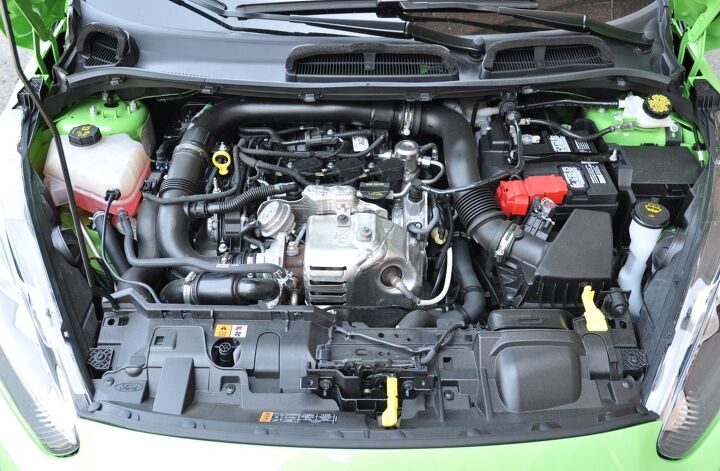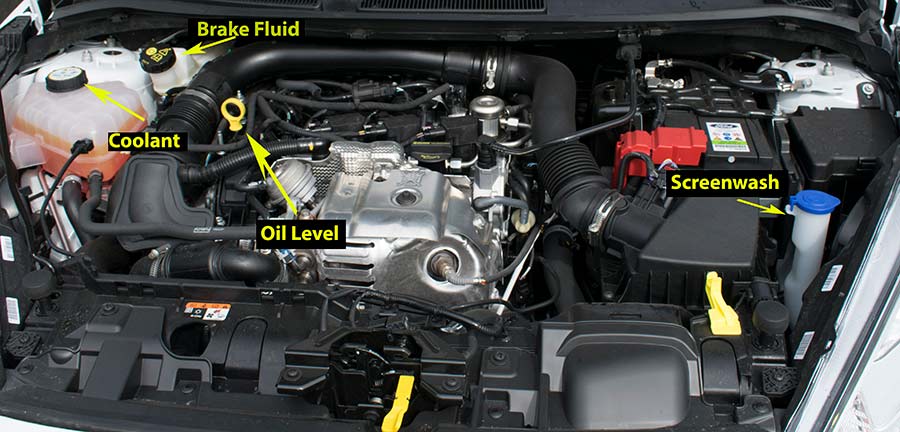Why Regular Maintenance of Your Ford Fiesta Engine Is Essential
Why Regular Maintenance of Your Ford Fiesta Engine Is Essential
Blog Article
Opening the Power of Engines: A Comprehensive Guide to Efficiency and Efficiency
Understanding the complex technicians of engines is essential for both performance lovers and day-to-day chauffeurs. The answers might redefine our approach to engine performance and performance in means that are both informing and crucial.
Recognizing Engine Essentials
What constitutes the fundamental mechanics of an engine? At its core, an engine is a device created to transform gas right into mechanical energy through a collection of regulated surges or burning procedures.
The crankshaft after that transforms this direct motion into rotational energy, which eventually powers the car. The camshaft manages the opening and closing of the shutoffs, controling the consumption of air and gas and the expulsion of exhaust gases. In addition, the engine relies on a meticulously calibrated fuel-air mix, ignition system, and cooling down system to make certain optimal efficiency and performance.
Understanding engine fundamentals likewise includes identifying the significance of engine cycles, such as the four-stroke cycle, which consists of intake, compression, power, and exhaust strokes. Each phase is important in ensuring the engine works efficiently and efficiently. Proficiency of these fundamental auto mechanics lays the groundwork for checking out more intricate engine dynamics and efficiency metrics, important for maximizing both power outcome and efficiency.
Trick Performance Metrics
Secret performance metrics are essential for examining an engine's effectiveness and power result, supplying beneficial understandings for both consumers and producers. These metrics serve as standards for engine efficiency, enabling for informed decisions in manufacturing, getting, and layout.
One of the main metrics is horsepower, which measures the engine's capability to do job over time. Torque, gauged in pound-feet, is an additional crucial metric that indicates the engine's rotational force, straight influencing velocity and lugging ability. Gas effectiveness, normally gauged in miles per gallon (MPG) or litres per 100 kilometers (L/100km), examines exactly how efficiently the engine converts fuel into movement, impacting environmental considerations and operational prices.
In addition, thermal performance procedures exactly how well an engine converts gas power into useful work, disclosing understandings into energy losses largely via warmth. Discharge levels, consisting of carbon dioxide and NOx, are additionally vital, showing the engine's environmental impact and conformity with governing criteria.

Tuning Strategies for Efficiency
Tuning techniques play a considerable duty in boosting engine efficiency by enhancing performance metrics identified in earlier discussions (ford fiesta engine). Numerous techniques exist to tweak an engine, each adding to boosted gas economy and decreased discharges
One efficient method is adjusting the air-fuel ratio, guaranteeing the engine operates within the optimal burning regimen. A leaner combination can boost gas effectiveness, however it should be balanced to avoid misfires or engine knock. In addition, reprogramming the engine monitoring system can rectify criteria such as ignition timing, which additionally enhances efficiency while maintaining power output.
Another vital approach involves changing the intake and exhaust systems. Upgrading to high-performance air filters and exhaust headers can reduce back stress, promoting much better air flow. This enables the engine to breathe more easily, bring about improved combustion efficiency.
Furthermore, the application of sophisticated tuning devices, like dyno testing, provides specific data that enables targeted changes. Routinely keeping track of these efficiency metrics makes sure that tuning initiatives generate the desired effectiveness results. Collectively, these strategies not only boost engine performance however also add to long-term sustainability in engine operations.
Upkeep for Optimal Efficiency
Regular engine upkeep is vital for achieving ideal efficiency and longevity. A properly maintained engine not only runs effectively but additionally decreases the threat of pricey fixings and breakdowns. Trick elements requiring regular focus consist of oil, filters, belts, and ignition system.
Altering the engine oil at recommended periods is vital, as oil lubricates relocating components and avoids getting too hot. Replacing oil and air filters guarantees that pollutants do not harm engine function. Overlooking these elements can bring about reduced effectiveness and possible engine damage.
Furthermore, evaluating and replacing click now worn belts and pipes is essential to prevent unexpected failures. Timing belts, specifically, need to be replaced according to the producer's timetable to stay clear of catastrophic engine damage.
Glow connects should also be checked and replaced as needed, since they play a vital duty in ignition and gas efficiency.
Future Trends in Engine Innovation
Welcoming innovations in modern technology, the future of engine layout is positioned to revolutionize efficiency and effectiveness across numerous applications. Crossbreed click for source and fully electrical powertrains are ending up being increasingly conventional, using decreased emissions and boosted fuel efficiency.
Moreover, technologies in materials science are resulting in lighter, more powerful components that boost engine performance while minimizing energy intake. Advanced manufacturing methods, such as 3D printing, enable the development of intricate geometries that enhance airflow and thermal monitoring, thus maximizing burning processes.
In addition, the assimilation of fabricated knowledge and artificial intelligence is readied to change engine diagnostics and efficiency adjusting. These technologies can analyze huge amounts of information in genuine time, enabling anticipating maintenance and customized efficiency improvements.
Conclusion
In final thought, opening the power of engines needs a comprehensive understanding of their auto mechanics and efficiency metrics. Executing efficient tuning strategies and sticking to routine upkeep techniques considerably enhance engine capacities. As the automobile landscape develops, accepting future fads in technology, consisting of electrification and advanced production, will certainly be critical for optimizing efficiency and effectiveness. This detailed approach not only benefits fanatics yet additionally adds to lasting remedies in the world of auto design.
Additionally, the engine relies on a thoroughly adjusted fuel-air combination, ignition system, and cooling down system to make certain optimal efficiency and performance.
Recognizing engine basics also entails identifying the relevance of engine cycles, such as the four-stroke cycle, which includes intake, compression, exhaust, and power strokes. Proficiency of these essential technicians lays the foundation for checking out more complicated engine dynamics and performance metrics, essential for enhancing both power output and effectiveness.

Embracing advancements wikipedia reference in technology, the future of engine design is poised to revolutionize efficiency and performance throughout numerous applications.
Report this page